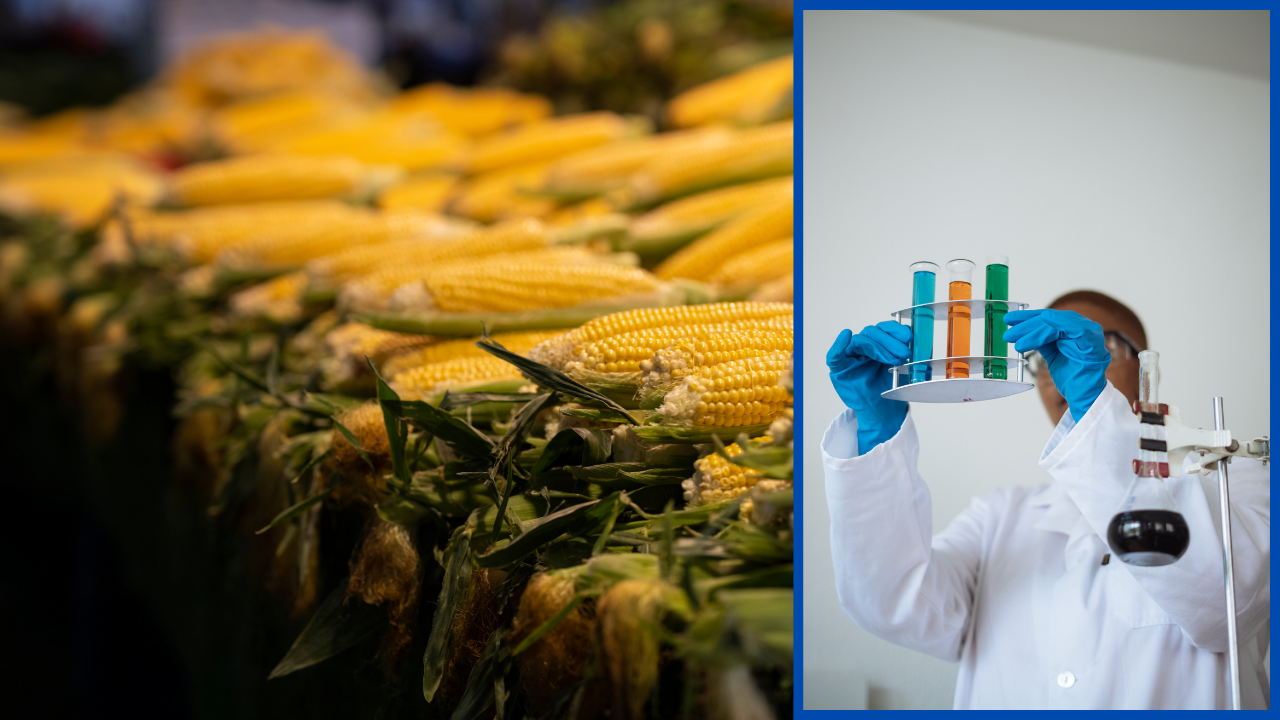Scientists Develop Innovative Technique for Faster Gene Identification and Development of Resilient Corn Varieties

Amaka Ifeduba PhD | Contributor on Agribusiness-related Topics
In this article, Dr. Amaka Ifeduba, a passionate advocate for agribusiness and research, explores the untapped potential of African agriculture and how the African diaspora can harness this opportunity for mutual growth.
Learn with AClasses Academy and improve yourself and your business skills.
With a unique blend of scientific communication and public speaking expertise, Dr. Ifeduba bridges the gap between agriculture and human development. She also coaches professionals on how to unlock global opportunities and secure placements in prestigious U.S. graduate schools.
But why should African diaspora entrepreneurs care about agribusiness in Africa? How can they leverage their position to not only profit but also contribute to solving pressing challenges like food insecurity and youth unemployment in Africa?
The African agricultural sector is rapidly growing, with an estimated $1 trillion industry by 2030, offering vast potential for those who want to make a lasting impact.
Later in the article, we will delve into how Dr. Ifeduba’s insights can benefit African diaspora agribusiness entrepreneurs and why now is the perfect time to engage with this booming sector. But first hear out Dr. Amaka Ifeduba in her own words.
Innovative Technique for Faster Gene Corn
Fifteen years after the first draft of the corn genome was published, the roles of 98% of nearly 40,000 of its genes remain unknown. Conventional gene characterization methods have been slow and expensive.
Scientists from the University of Nebraska-Lincoln (UNL) are at the forefront of tackling this problem. Their innovative work, published in The Plant Journal, has the potential to revolutionize the development of resilient corn varieties, thereby making enhanced crops more accessible to farmers.
Led by postdoctoral associate Vladimir Torres-Rodriguez and Professor James Schnable, the team’s innovative approach was RNA-based. Each gene or transcript abundance was linked to a phenotype, and genome-wide association was conducted using a published resequencing-based genetic marker data approach.
Their technique identified ten times more genes affecting flowering time than traditional DNA-based methods. By identifying the functions of individual corn genes more rapidly and accurately, this breakthrough will reduce the cost of developing new gene-edited corn varieties and increase broader producer access to improved crops.
This has the potential to lower prices for farmers, offering a brighter future for the agricultural industry and the global food supply.
The project was not without its challenges, requiring the development of new and unique lab and field techniques. These included rapid sample collection and flash freezing to preserve RNA integrity, as well as the use of special equipment designed by Jonathan Turkus using 3D printing.
Torres-Rodriguez also played a pivotal role in developing a software pipeline for data analysis, repurposing tools, and creating new quality control steps.
The goal, Schnable said, is “to make sure that, decades from now, when a Nebraska farmer is driving his tractor, the corn being planted has the genetics to perform well and tolerate harsher conditions.”
Supported by a $650,000 grant from the U.S. Department of Energy’s Advanced Research Projects Agency-Energy program, this project positions UNL as a leading research institution for corn genetics.
See also Innovative Farming Techniques for Small and Medium-Scale Farmers in Nigeria
Collaborations with private-sector scientists like Brad Zamft, the project lead of a stealth plant biology project at X, Alphabet’s “moonshot factory” division that explores a range of scientific innovations, make the future even more promising.
“The expertise that we have experienced and the collaborations that we have engaged in have been delightfully productive, and I think could have a real impact on the world.
There is no doubt in my mind the University of Nebraska is an agricultural technology powerhouse”, Zamft said, to underscore UNL’s potential to impact not just local or regional agriculture, but the global agricultural technology landscape.
By harnessing the power of RNA precision and specificity, this innovation could positively impact the development of climate-smart corn varieties that can adapt to sub-optimal conditions worldwide.
With Dr. Amaka’s insights in mind, let’s delve into the benefits of resilient corn varieties for your agribusiness venture as an entrepreneur in the African diaspora.
Three Economic Opportunities Of Resilient Corn Varieties
The development of resilient corn varieties offers significant economic opportunities for African agribusiness entrepreneurs, addressing both local challenges and global market demands.
By enhancing crop resilience, these innovations provide a pathway for greater productivity, profitability, and sustainable growth in the agricultural sector. In this section, we’ll explore three key economic benefits that resilient corn varieties bring to African agribusiness entrepreneurs, from increased yields to new job opportunities and expanded market access.
Increased Crop Yields and Profitability:
Resilient corn varieties, developed through advanced genetic techniques, are designed to thrive under harsher conditions such as drought, pests, or diseases. For African agribusiness entrepreneurs, this offers a significant economic opportunity to boost crop yields even in challenging environments.
With higher productivity per hectare, farmers can cultivate more corn, leading to increased output and, ultimately, higher profitability.
Entrepreneurs in the agribusiness value chain, from seed production to processing and distribution, can benefit from a more reliable and abundant supply of corn. Additionally, more consistent yields reduce the financial risks associated with farming, encouraging long-term investment in the sector.
Market Expansion and Export Potential:
As resilient corn varieties improve the quality and quantity of crops, they present an opportunity for African agribusiness entrepreneurs to tap into both regional and international markets.
With the growing global demand for high-quality and climate-resilient crops, entrepreneurs can explore export opportunities, particularly in regions facing food insecurity or relying on corn imports.
For example, countries in Africa, Asia, and even the Middle East are major corn importers, and Africa’s proximity and climate advantages could make it a competitive supplier.
As resilient corn varieties can be tailored to different climates and conditions, they offer scalability across various African regions, fostering trade and economic growth through increased exports.
Job Creation and Rural Development:
The adoption of resilient corn varieties can play a vital role in creating job opportunities across the agricultural value chain.
From seed production and research to farming, processing, packaging, and retail, entrepreneurs can generate employment for local communities, especially in rural areas where agricultural activities are the main source of livelihood.
This growth can have a multiplier effect on local economies by increasing demand for goods and services that support farming activities, such as equipment, transportation, and storage.
By fostering a more resilient agricultural sector, African agribusiness entrepreneurs contribute to poverty alleviation and rural development, which aligns with broader economic development goals for the continent.
Conclusion On Transformative Opportunity For African Agribusiness
In conclusion, resilient corn varieties present a transformative opportunity for African agribusiness entrepreneurs, unlocking potential for higher productivity, market expansion, and rural development.
By leveraging these innovations, entrepreneurs can not only achieve profitability but also contribute to addressing critical challenges like food insecurity and unemployment across the continent.
As the agricultural sector continues to evolve, embracing these advancements will be key to building a sustainable and prosperous future for Africa and its people.
Learn with AClasses Academy and improve yourself and your business skills.




